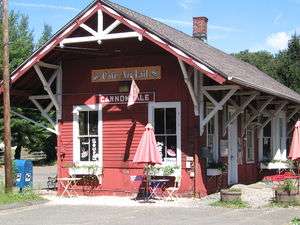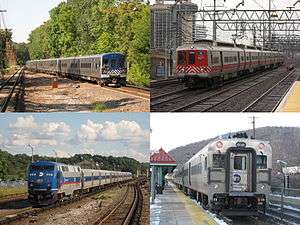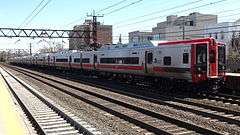Danbury Branch
| Danbury Branch | ||||||||||||||||||||||||||||||||||||||||||||||||||||||||||||||||||||||||||||||||||||||||||||||||||||||||||||||||||||||||||||||||||||||||||||||||||||||||||||||||||
|---|---|---|---|---|---|---|---|---|---|---|---|---|---|---|---|---|---|---|---|---|---|---|---|---|---|---|---|---|---|---|---|---|---|---|---|---|---|---|---|---|---|---|---|---|---|---|---|---|---|---|---|---|---|---|---|---|---|---|---|---|---|---|---|---|---|---|---|---|---|---|---|---|---|---|---|---|---|---|---|---|---|---|---|---|---|---|---|---|---|---|---|---|---|---|---|---|---|---|---|---|---|---|---|---|---|---|---|---|---|---|---|---|---|---|---|---|---|---|---|---|---|---|---|---|---|---|---|---|---|---|---|---|---|---|---|---|---|---|---|---|---|---|---|---|---|---|---|---|---|---|---|---|---|---|---|---|---|---|---|---|---|---|
|
| ||||||||||||||||||||||||||||||||||||||||||||||||||||||||||||||||||||||||||||||||||||||||||||||||||||||||||||||||||||||||||||||||||||||||||||||||||||||||||||||||||
|
Cannondale station in Wilton, CT. | ||||||||||||||||||||||||||||||||||||||||||||||||||||||||||||||||||||||||||||||||||||||||||||||||||||||||||||||||||||||||||||||||||||||||||||||||||||||||||||||||||
| Overview | ||||||||||||||||||||||||||||||||||||||||||||||||||||||||||||||||||||||||||||||||||||||||||||||||||||||||||||||||||||||||||||||||||||||||||||||||||||||||||||||||||
| Type | Commuter rail | |||||||||||||||||||||||||||||||||||||||||||||||||||||||||||||||||||||||||||||||||||||||||||||||||||||||||||||||||||||||||||||||||||||||||||||||||||||||||||||||||
| System | Metro-North | |||||||||||||||||||||||||||||||||||||||||||||||||||||||||||||||||||||||||||||||||||||||||||||||||||||||||||||||||||||||||||||||||||||||||||||||||||||||||||||||||
| Status | Operating | |||||||||||||||||||||||||||||||||||||||||||||||||||||||||||||||||||||||||||||||||||||||||||||||||||||||||||||||||||||||||||||||||||||||||||||||||||||||||||||||||
| Locale | Norwalk, CT to Danbury, CT | |||||||||||||||||||||||||||||||||||||||||||||||||||||||||||||||||||||||||||||||||||||||||||||||||||||||||||||||||||||||||||||||||||||||||||||||||||||||||||||||||
| Termini |
Grand Central Terminal rush hours South Norwalk Danbury / New Milford (proposed) | |||||||||||||||||||||||||||||||||||||||||||||||||||||||||||||||||||||||||||||||||||||||||||||||||||||||||||||||||||||||||||||||||||||||||||||||||||||||||||||||||
| Stations | 8 (+4 proposed) | |||||||||||||||||||||||||||||||||||||||||||||||||||||||||||||||||||||||||||||||||||||||||||||||||||||||||||||||||||||||||||||||||||||||||||||||||||||||||||||||||
| Operation | ||||||||||||||||||||||||||||||||||||||||||||||||||||||||||||||||||||||||||||||||||||||||||||||||||||||||||||||||||||||||||||||||||||||||||||||||||||||||||||||||||
| Owner | Connecticut DOT | |||||||||||||||||||||||||||||||||||||||||||||||||||||||||||||||||||||||||||||||||||||||||||||||||||||||||||||||||||||||||||||||||||||||||||||||||||||||||||||||||
| Operator(s) |
Metro-North (passenger 1983 – present) PW (freight 1993 – present)[1] Housatonic (freight 1983 – present) | |||||||||||||||||||||||||||||||||||||||||||||||||||||||||||||||||||||||||||||||||||||||||||||||||||||||||||||||||||||||||||||||||||||||||||||||||||||||||||||||||
| Character | Commuter rail / Branch line | |||||||||||||||||||||||||||||||||||||||||||||||||||||||||||||||||||||||||||||||||||||||||||||||||||||||||||||||||||||||||||||||||||||||||||||||||||||||||||||||||
| Rolling stock | Diesel led trains in push-pull formation | |||||||||||||||||||||||||||||||||||||||||||||||||||||||||||||||||||||||||||||||||||||||||||||||||||||||||||||||||||||||||||||||||||||||||||||||||||||||||||||||||
| Technical | ||||||||||||||||||||||||||||||||||||||||||||||||||||||||||||||||||||||||||||||||||||||||||||||||||||||||||||||||||||||||||||||||||||||||||||||||||||||||||||||||||
| Line length | 23.9 mi (38.46 km) | |||||||||||||||||||||||||||||||||||||||||||||||||||||||||||||||||||||||||||||||||||||||||||||||||||||||||||||||||||||||||||||||||||||||||||||||||||||||||||||||||
| Track gauge | 1,435 mm (4 ft 8 1⁄2 in) | |||||||||||||||||||||||||||||||||||||||||||||||||||||||||||||||||||||||||||||||||||||||||||||||||||||||||||||||||||||||||||||||||||||||||||||||||||||||||||||||||
| Electrification | None | |||||||||||||||||||||||||||||||||||||||||||||||||||||||||||||||||||||||||||||||||||||||||||||||||||||||||||||||||||||||||||||||||||||||||||||||||||||||||||||||||
| ||||||||||||||||||||||||||||||||||||||||||||||||||||||||||||||||||||||||||||||||||||||||||||||||||||||||||||||||||||||||||||||||||||||||||||||||||||||||||||||||||
Metro-North Railroad's Danbury Branch is a diesel branch of the New Haven Line from downtown Norwalk, Connecticut north to Danbury, mostly single-tracked. It opened in 1852 as the Danbury and Norwalk Railroad. Until the early 1970s the branch originally had passenger service from Danbury to Canaan, Connecticut, to Pittsfield, Massachusetts. Metro-North took over operation of the line from Conrail in 1983.
History

The Danbury and Norwalk Railroad began operating its line from Norwalk north to Danbury on February 22, 1852. In July 1872 a branch from the main line at Bethel northeast to Hawleyville opened. At Hawleyville, the branch connected to the Housatonic Railroad, continuing north into Massachusetts. Also at Hawleyville, connections with the Shepaug Railroad to Litchfield were possible.[2]
Starting on May 1, 1874, that connection was supplemented by the New York, Housatonic and Northern Railroad, running from Danbury northeast to the Housatonic. In 1881 the New York and New England Railroad was completed, giving another connection at Danbury and at Hawleyville. A short branch from Branchville on the main line west to Ridgefield opened July 1, 1870. In July 1882 an extension was built in Norwalk to docks at Wilson Point. The Housatonic Railroad leased the D&N on July 21, 1887; and soon after, the New York, New Haven and Hartford Railroad leased the Housatonic.[2]
The Danbury Line operated electric-powered trains beginning in 1925. Steel posts that once carried the overhead catenary system can still be seen along the line. The catenary system on the Danbury Line was removed in 1961 when diesel-powered locomotives resumed service on the line.[3]
Long-distance passenger service operated on the line. The Berkshire ran on the line from Grand Central to Danbury, to Pittsfield, Massachusetts. The NYNH&H merged into Penn Central in 1969. On January 1, 1971, the State of Connecticut leased the Danbury Branch from Penn Central.[4] The last passenger train from Danbury north to Pittsfield, Massachusetts ran in April 1971, the day before Amtrak assumed passenger operations. From 1976 until 1983, freight and passenger service on the line was provided by the Consolidated Rail Corporation (Conrail) under a contract with Connecticut. In 1983 the newly formed Metro-North Commuter Railroad took over operation of passenger service along the line.[1] Conrail continued to provide freight service on the line until 1993. The Providence and Worcester Railroad now provides freight service along the Danbury Branch.
Upon renovation of the Merritt 7 station, Metro-North ceased stops at Kent Road on January 16, 1994, and instead provided service via shuttle bus to Merritt 7 for local employers. By the time of its closing, less than 15 passengers used Kent Road station daily.[5]
The Switchtower Museum in South Norwalk describes to visitors how railroad employees would switch the tracks for trains continuing on the Danbury branch line, then switch them back for trains traveling along the New Haven main line.
The Danbury Railway Museum is located in the former Union Station of the D&N and NY&NE in Danbury. It lies just north of the current Danbury Metro-North passenger station. At the museum are examples of rolling stock retired from service as well as an indoor display of model trains.
Plans

There have been proposals to re-electrify the Danbury Branch, along with a plan to extend service north from Danbury to New Milford.[6]
In connection with the planned redevelopment of the Gilbert & Bennett Wire Mill as a residential neighborhood, reopening a Georgetown station between the Cannondale and Branchville stations has been approved, though not yet scheduled or funded.[7][8] The previous station was abandoned in the 1970s due to low ridership.
Over $60 million was allocated to the Danbury Branch, approximately half from the economic stimulus package of 2009, to improve current stations, build siding tracks, and install a new signal system. Connecticut Gov. M. Jodi Rell held a press conference with local politicians at the Cannondale station on July 28, 2009, to announce that construction was scheduled to start in late 2009 and finish in 2011.[9] The new signal system finally began operation in 2013, but extensive work was still ongoing in 2014 because of unresolved problems with the drop gates at grade crossings.[10][11]
In the Fall of 2012, the focus of the plan was only on improving the corridor as far as Danbury, with no extension.[6]
In May 2015, The governor's five-year plan for transportation improvements called "Let's Go CT" only mentioned one point for the Danbury Branch.[12] This is a new small rail yard called the Danbury Line Dock Yard Improvements. This area in South Norwalk will include electrification of the southern end of the branch. This was to enable work to commence on the Walk Bridge.[13] However, at the same time a 30-year plan was published that does envision electrification of the Danbury Branch, extending service to New Milford and electrifying that extension.[14]
Stations

West of South Norwalk, the New Haven Line continues southwest to Grand Central Terminal and northeast to Union Station New Haven.
All peak trains and some off-peak run to Stamford on weekdays, and limited service runs to Grand Central Terminal as well. Two weekday trains serve the intermediate stations (Rowayton, Darien, and Noroton Heights) in peak direction.
| Zone | Station | Miles (km) from GCT |
Date opened |
Date closed |
Connections / notes |
|---|---|---|---|---|---|
| Northeast Corridor / New Haven Line continue south | |||||
| 17 | South Norwalk |
41.0 (66.0) | Originally Norwalk | ||
| Danbury Branch splits from the New Haven Line | |||||
| 41 | Merritt 7 | 45.0 (72.4) | 1985[15] | ||
| Wilton | 48.5 (78.1) | 1852 | |||
| Cannondale | 50.2 (80.8) | 1852 | |||
| Georgetown | Proposed station | ||||
| 42 | Branchville | 54.0 (86.9) | 1852 | ||
| Redding |
58.7 (95.5) | 1852 | Also known as West Redding | ||
| Bethel |
62.2 (100.1) | 1852 | |||
| Danbury |
64.9 (104.4) | 1852 | Replaced former Danbury Union Station | ||
| 43 | North Danbury | Proposed station | |||
| Brookfield | Proposed station | ||||
| New Milford | 1886 | Proposed station | |||
Rolling stock
Unlike the New Haven main line or New Canaan Branch, the Danbury Branch is not electrified and uses diesel locomotives in push-pull operation. Usually, the diesels push the trains toward Grand Central Terminal, and pull toward Danbury. All of the rolling stock cars are Shoreliner series cars, powered by GE Genesis or Brookville BL20-GH locomotives.
References
- 1 2 Ronald Dale Karr (1995). The Rail Lines of Southern New England, A Handbook of Railroad History. Branch Line Press. ISBN 0-942147-02-2.
- 1 2 Philip C. Blakeslee (1953). A Brief History Lines West of the New York, New Haven and Hartford Railroad Co. Railroad Enthusiasts, Inc. Retrieved April 29, 2014.
- ↑ "Danbury Branch Rail Line History". Housatonic Valley Council of Elected Officials. Retrieved April 29, 2014.
- ↑ "PRR Chronology 1971" (PDF). The Pennsylvania Railroad Technical & Historical Society. June 2005. Retrieved April 29, 2014.
- ↑ "Trains Will End Stops at Kent Road Sunday". The Wilton Bulletin. January 12, 1994. Retrieved April 29, 2014.
- 1 2 "Danbury Branch Electrification Feasibility Study". Connecticut Department of Transportation. Retrieved April 29, 2014.
- ↑ Prevost, Lisa (January 30, 2005). "A Mill Town Writes Its Next Chapter". The New York Times. Retrieved April 29, 2014.
- ↑ "State Approves $2 Million Bond For Redding Mill Redevelopment". The Weston Daily Voice. February 3, 2014. Retrieved April 29, 2014.
- ↑ O'Connor, Kara (July 29, 2009). "Rell unveils $30M Danbury rail project". The Hour. 138 (210). p. A1. Retrieved April 29, 2014.
- ↑ "Update on the Danbury Branch Grade Crossings". Metropolitan Transportation Authority. March 26, 2014. Retrieved April 29, 2014.
- ↑ "Metro-North's New Spring Schedule Enhances Reliability". Metropolitan Transportation Authority. April 28, 2014. Retrieved April 29, 2014.
- ↑ "Connecticut's 5 Year Transportation Ramp-Up Plan FEBRUARY 2015" (PDF). The Connecticut Department of Transportation. February 2015. Retrieved 26 January 2016.
- ↑ Koch, Robert (August 15, 2015). "Connecticut Department of Transportation prepares to rebuild Metro-North 'Dock Yard'". The Hour. Retrieved 26 January 2016.
- ↑ "Connecticut's Bold Vision for a Transportation Future FEBRUARY 2015" (PDF). The Connecticut Department of Transportation. February 2015. p. 60. Retrieved 26 January 2016.
- ↑ Charles, Eleanor (July 28, 1985). "RAIL STATION FOR CORPORATE PARK". New York Times.



.jpg)